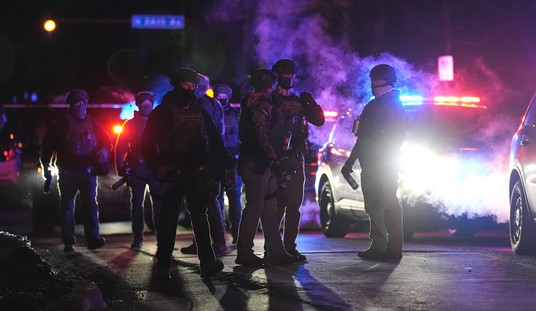It’s been over a year since the Times of London discredited the 1998 Lancet study that claimed to link autism with thimerasol in vaccines, and three months since Lancet formally retracted the paper. Other studies never duplicated the results of the first, and autism rates have remained steady since thimerasol’s removal from the process. Yet people still worry over a link between vaccines and autism. Reason TV offers a look into the dangers of confusing correlation with causation, and the damage poorly-designed studies can do:
A 1998 article published in the British medical journal The Lancet generated enormous impact by proposing a link between autism and childhood vaccines. Since then, celebrity activists like Jenny McCarthy have argued that common shots like the measles, mumps, and rubellla vaccine (MMR) trigger autism. Countless media stories have covered the alleged link.
Some parents take to the streets to protest the federal government’s vaccine policy and thousands more take the issue to court. Many others, like Kelly Green, who runs AutismHwy.com and is the mother of an autistic child, feel overwhelmed by the information flooding in from both sides of the debate. Jim Moody of the think tank Safe Minds blames the federal government for not being honest about the threat and failing to provide reliable information on the matter. But researchers like UC Santa Barbara’s Lynn Koegel say the evidence is overwhelming that vaccines do not cause autism.
Recently, the debate took another turn when The Lancet retracted the 1998 article that did so much to spark the controversy. Will the retraction finally allay parents’ worries or will some continue to resist vaccinations?
No one can blame parents for taking as much caution as possible with their children. Certainly, the initial “shut up and give us your children” response from the health-care establishment didn’t help, either. But the health-care establishment has itself to blame for not doing what the Times of London did during the decade where that study was endlessly quoted as a credible source for confirming causation instead of correlation.
Most children get their MMR shots at one year. Autism becomes pronounced enough at one age to allow for diagnosis. As one woman states in the video, it’s hardly unreasonable for parents to question whether the two might be linked. It’s up to publications like the Lancet to demand total transparency and a reasonable set of research standards before publishing studies that claim causation rather than correlation, which Lancet obviously failed to do. That has put thousands of children at risk, thanks to their complicity in frightening parents away from vaccinations.
That same lesson can be applied to global-warming claims as well. And probably won’t be.
Update: Most kids get vaccine shots starting at 2 months; the MMR comes at one year, and that was the shot that created the controversy. Thanks to the commenter who asked me to clarify this.







Join the conversation as a VIP Member